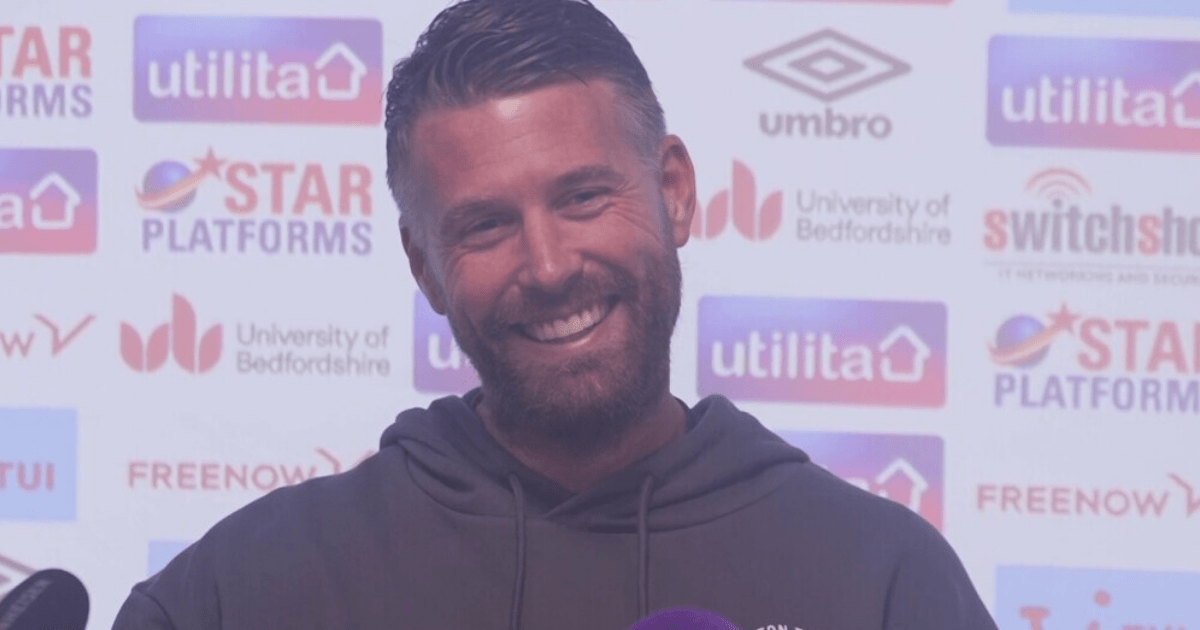Luton Town's Injury Woes
Luton Town is facing a mounting injury crisis as they gear up to face Tottenham, with assistant manager Kevin Foley also sidelined with a hamstring injury.
Chiedozie Ogbene Latest Casualty
Chiedozie Ogbene is the newest addition to Luton's injury list after being forced to withdraw from Ireland's training camp due to a setback ahead of their friendly against Switzerland.
Struggles Continue for Luton
Luton has been plagued by injuries this season, with key players like Marvelous Nakamba, Jacob Brown, Amari'i Bell, and others sidelined with various issues, leaving the squad depleted.
Relegation Battle Looms
With Luton currently placed 17th in the league standings, the team faces a challenging relegation battle and must stay focused to secure their spot in the Premier League for the next season.

Uncertainty Surrounds Competing Teams
Luton's situation is further complicated by the uncertain status of competing clubs like Nottingham Forest and Everton, who are appealing against point deductions, adding another layer of complexity to the relegation battle.
Frequently Asked Questions
How do I become a competent football goalkeeper
Becoming an excellent goalkeeper requires special training that focuses on agility, positioning, and reflexes. A goalkeeper must excel at shot-stopping, command of the penalty area through proficient catching and punching, and distribution with both hands and feet. Mental resilience, decision making under stress, and effective communication are all key elements of goalkeeping. Consistent practice, constructive feedback from coaches, and analyzing performances to identify areas for improvement are essential in mastering the art of goalkeeping.
What is the importance of a footballer’s nutrition and diet?
Nutrition is crucial to the performance and recovery of a footballer. For energy, muscle repair and general health, a balanced diet with a mix of carbohydrates and proteins, fats and vitamins is essential. Dehydration, which can affect performance in a negative way, is another important factor. Specific nutrition strategies and timing can change depending on your training schedule and matches. Consulting a sports dietician to develop customized dietary plans is often helpful.
How can I improve my technique in football?
It is important to practice your fundamentals and improve your technique. It is essential to regularly perform drills which improve ball control, accuracy passing and precise shooting. You can also improve your technique by spending some time working on your weaker foot, improving your balance and coordination and doing agility exercises. Additionally, watching professional footballers in action and analyzing the way they move, position themselves, and make decisions can give you valuable insights and improve your skills.
What is the best physical conditioning for a footballer?
Football players must have a comprehensive conditioning program that covers all aspects of fitness. Included in this are aerobic exercises that improve endurance, sprint training to improve speed, agility and power, as well as flexibility routines for injury prevention and recovery. Also, using sport-specific exercises that mimic match conditions is beneficial to prepare the body for football’s physical demands. Working with a certified fitness professional or coach can help tailor the program to an individual’s needs.
What is the best defensive strategy against a powerful offensive team?
It is important to have a disciplined strategy when defending against an offensively strong team. Fundamental tactics include forming a strong defensive line, keeping a compact team and using a disciplined marking scheme. By forcing the opposing attackers to the sides instead of the center, you can reduce their chances of scoring. It is also important to have good communication between the defenders, and make quick changes from offense to defense if possession is lost. The counter-attacking strategy can then be employed to exploit any openings that may occur as the offensive team commits its players forward.
Statistics
- Defensive units that practice coordinated drills together at least twice a week concede 18% fewer goals in match play.
- Coaches who engage in continuous professional development contribute to a 40% better win ratio for their teams.
- Goalkeepers who engage in specialized reaction-time training reduce their goals-conceded tally by an average of 25% over a season.
- Youth players who participate in football education programs have a 35% higher chance of being scouted by professional clubs.
- Players who train for more than 10 hours a week show a 20% improvement in technique compared to those who train for less time.
External Links
uefa.com
bbc.co.uk
nscaa.com
ussoccer.com
ffacoach.com
How To
How To Boost Your Football Intelligence
To improve your tactical intelligence in football, begin by studying various formations and strategies employed by top teams. Be sure to pay attention when watching professional matches. Regularly play small-sided matches that mimic match scenarios to sharpen your decision making skills. Work with a coach to discuss your game and adaptability. Attending tactical workshops and reading books on football tactic can help you improve your game knowledge.

